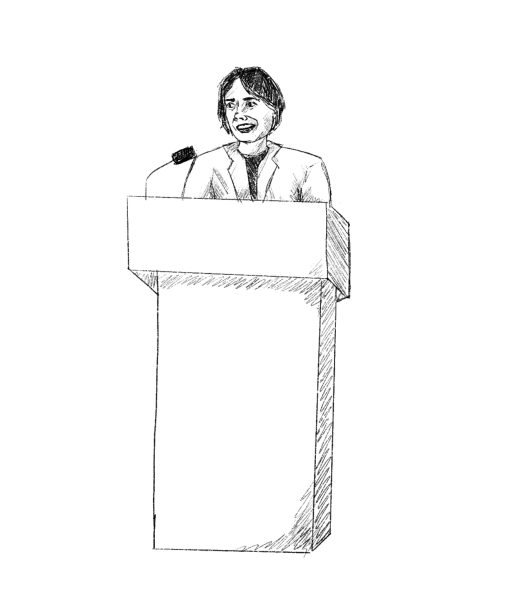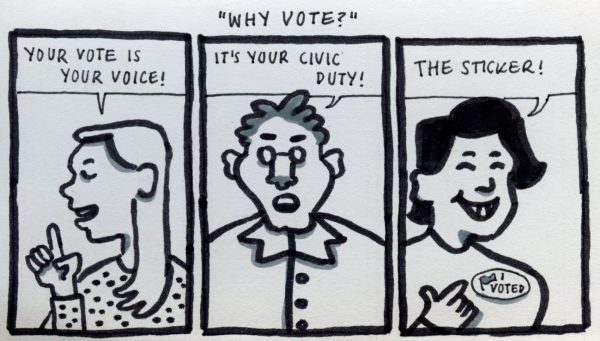Locking Horns with the Past
April 4, 2017
This has been a busy few weeks, and Trump has been attempting to assert his competence in the oval office by making true the commitments he made during his campaign. As promised, he immediately went about trying to repeal the Affordable Care Act (ACA), more commonly known as Obamacare. The ACA has, since conception, been widely unpopular among the republican party. This is largely due to an ideological and economic conflict over the fact that Obamacare mandates that those who can afford to pay for a private provider have to pay more, redirecting the excess to help those who require the aid of governmental provision. During the presidential campaign of last year, Trump claimed that dismantling the ACA would not only happen right away, but would be easy. Last week those words were put to the test. Trump offered up his own revised health care proposal, which was oriented towards privatizing health insurance. Neither the democrats nor prominent republican factions such as the Freedom Caucus found the proposal appealing. The GOP found it largely unsatisfactory, Kentucky Senator Rand Paul calling it “Obamacare Lite.” This reception of repugnancy was only reinforced when those in the Congressional Budget Office crunched some numbers, estimating that in the first year alone, 14 million Americans would lose health insurance. That number would rise to 24 million, they said, by 2026. The reactions of the republicans and the open verbal rejection from GOP organizations like the Freedom Caucus offers a clear implication that republicans desire a more extreme rendition of healthcare;one that diminishes social-cost responsibility among the wealthy. Democrats, on the other hand, have voiced fears for those who will now find healthcare out of their financial reach.
After the shaking political defeat, Trump needs to take scrupulously well thought-out action to prove his capacity as not just a businessman but a political leader. Evidently President Trump thought he needed to take action too. The manifestation of this realization took shape as the new executive order he signed on Tuesday that took a swing at Obama’s towering environmental protection legacy, threatening to turn it into rubble. The order revoked some of the policies Obama had put in place, such as limitations on coal mining that inhibited fossil fuel production. It was legal barriers like those limitations on fossil fuel usage and production which were pivotal for keeping the U.S on track for the Paris Climate Agreement’s goal of cutting back on CO2 emissions by a third between 2005 and 2030. Trump’s reasoning for signing the reformative executive order is that it will revitalize the coal mining industry, ultimately benefiting the United States economy. There has been some controversy over that claim. Professors from Harvard and Wyoming University are arguing that jobs won’t increase because the coal operations that have remained functional to this day have relied on mechanized work rather than human employees. This being true, Trump’s executive order may only result in an increase in production and use of coal for energy, but actually decrease or have a negative impact on jobs in the field. We’ll find out the truth of this dispute in the coming years.
Trump has continued to throw around some lofty allegations even now that he’s secured his place in the Oval Office. Throughout the last few weeks, he’s been accusing President Obama of wiretapping his phone during the electoral campaigns in the hopes of catching him in communication with Russian authorities. If this were true, the repercussions of such an act would be obvious. However, FBI director James Comey announced that there was no evidence to support these claims. Since then, accusations have taken another 180 degree spin to face back at Trump. Former attorney general Sally Yates, fired earlier this year by President Trump, was prepared to speak on the investigation of illegal communications between Trump and Russia in a hearing. Her testimony is as of yet unheard, due to interference by the Trump administration. According to the Washington Post, Yates was notified by the Justice Department that the content of her testimony was off-limits as decreed by the presidential communication privilege—a plea similar to that heard long ago from the White House when they were trying to hide President Nixon’s scandalous Watergate tapes that resulted in his resignation from office. Evidently, they don’t want her to publicize any information she might have attained on the matter as attorney general. This recent event has prompted even more suspicion on where Trump stands with personal friendliness towards Russia.








